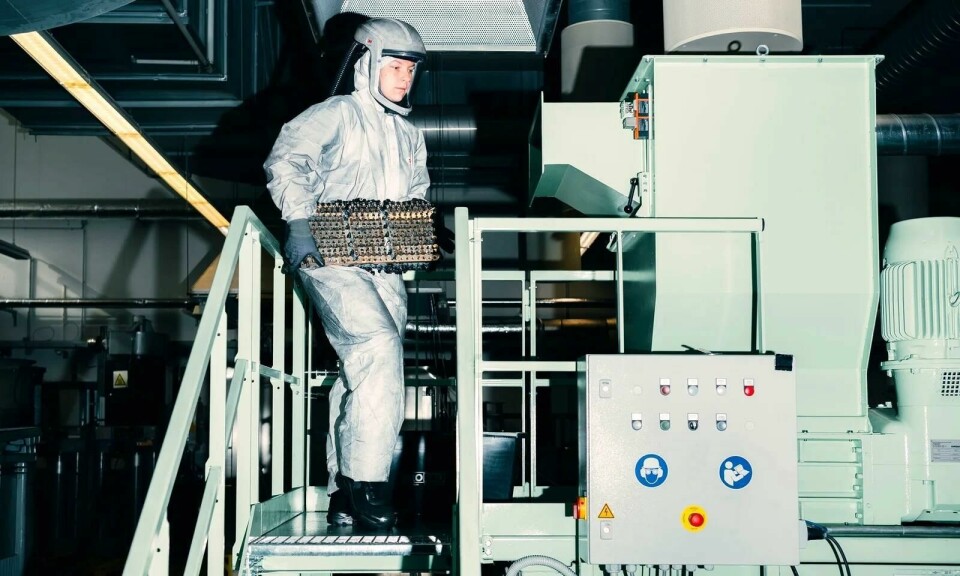Webasto and Cylib forge sustainable partnership to recycle used batteries and secure critical raw materials
Automotive supplier Webasto has partnered with battery recycling scale-up Cylib to recover lithium, graphite and other key materials. The collaboration will help Webasto meet EU sustainability targets while securing critical resources for Europe’s electrification push.

”Cylib’s process reduces the carbon footprint of recycling by up to 30%. A key innovation is a water-based technique that enhances the sustainability of raw material recovery”
The shift to electrification is accelerating demand for lithium, graphite and other battery materials, while the number of used batteries requiring recycling continues to rise. To address both challenges, automotive supplier Webasto has entered into a partnership with German recycling scale-up Cylib, ensuring that end-of-life batteries can be transformed into valuable resources for the future automotive production.
Under the agreement, Cylib will collect and recycle used batteries and production waste from Webasto’s European manufacturing sites. The Stockdorf-based supplier, which has been producing battery systems for passenger and commercial vehicles since 2019, sees this collaboration as a crucial step towards achieving sustainability goals and strengthening the local supply chain.
”Our recycling technology recovers all valuable materials from spent lithium-ion batteries, including lithium and graphite”
A more Sustainable recycling process
Cylib employs an advanced battery recycling process that maximises material recovery while minimising environmental impact. Its system combines mechanical, thermal and hydrometallurgical techniques to extract lithium, graphite and other valuable elements. By using fewer chemicals than conventional methods, Cylib’s process reduces the carbon footprint of recycling by up to 30%. A key innovation is a water-based technique that enhances the sustainability of raw material recovery.
Webasto and Cylib have already been working together since 2023, including on ‘Design for Recycling’ initiatives that aim to improve battery recyclability from the outset. “Our recycling technology recovers all valuable materials from spent lithium-ion batteries, including lithium and graphite,” says Cylib co-founder and COO Dr Gideon Schwich. The partnership with Webasto is an important step towards scaling up battery recycling. Together, we are securing the raw materials of tomorrow and driving forward the circular economy in Europe.”
”Collaborations like the one between Webasto and Cylib are in the interest of the entire European automotive industry, because they make the local raw material ecosystem more sustainable and resilient”
Marcel Bartling, Chief Technology Officer of Webasto, comments, “the benefits of this collaboration extend beyond Webasto and Cylib, reinforcing Europe’s entire automotive supply chain. Collaborations like the one between Webasto and Cylib are in the interest of the entire European automotive industry, because they make the local raw material ecosystem more sustainable and resilient - ultimately benefiting everyone, right down to the end consumer.”
Read more battery stories
- Honda turns to Toyota for hybrid batteries in the US
- How Henkel is co-developing the EV batteries of the future
- Mazda to build module pack plant for cylindrical lithium-ion batteries
- Solving EV battery pack development, cost and production challenges
Staying ahead of EU regulations
Regulatory pressure is mounting on battery manufacturers and recyclers. The EU Battery Regulation mandates that by 2030, at least 70% of lithium and 95% of cobalt, nickel and copper must be recovered from used batteries. Cylib’s recycling process already surpasses these targets, ensuring that Webasto is well positioned to comply with future legal requirements.
Beyond recycling, Webasto is exploring ways to extend battery life. At its Schierling plant in Bavaria, the company has implemented a battery storage system with a capacity of one megawatt hour, using 30 repurposed batteries from pre-series production. These are now employed to store solar energy generated onsite, providing a sustainable energy solution for the plant’s operations.
Through its partnership with Cylib and its initiatives in battery storage, Webasto is not only meeting regulatory requirements but also shaping a more resilient and circular future for Europe’s electrified automotive industry.


